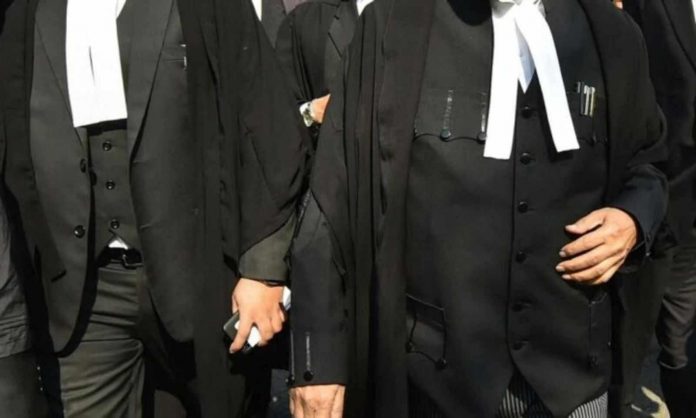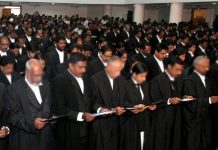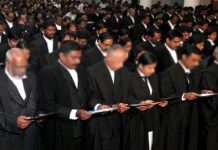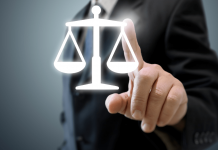This article is written by Ridhima Purwar, from Symbiosis Law School, Noida. The article extensively talks about the new Draft of Advocates (Protection) Bill, 2021, and how it will help to curb violence.
Table of Contents
Introduction
The Bar Council of India (BCI) recently appointed a seven-member committee to develop an “Advocates Protection Act” to safeguard the “protection and safety of attorneys throughout the country.” The BCI’s general council stated in its decision that frequent violent physical attacks on members of the advocates’ fraternity are “very upsetting” and a “danger and attack on the independence of the Bar.” If the Union and state governments do not address the matter, the attorneys would “resort to a national agitation,” according to the council. Lawyers, contrary to popular belief, are not immune to workplace violence. They are frequently confronted with threats from opposing parties, interested parties, their clients, and even the entire system.
The idea behind drafting the Bill
Violence against advocates as a result of lawsuits or other activity linked to their practice is on the rise. It is critical to recognise that litigation may cause emotional stress to those involved in it or to anybody else who may be affected by its conclusion, creating the path for misplaced hatred against the counsels. As a result, it is fair to assume that the amount of danger involved in doing their work is enormous. The concern of the risk to their life, the mental anguish that this causes, and the possibility that this risk may damage their families leads advocates to decline to take on a risky case.
As a result, some sorts of parties, such as terrorists, rapists, and crime victims, are unable to find a lawyer prepared to embark on their case. It also discourage novices to the profession from taking up issues that seek societal transformation. The powerful lobbying around the sphere throws a fearful shadow on the profession, which is regarded as one of the noblest among others.
The recent R. Muthukrishnan v Registrar of the High Court of Judicature of Madras (2019) case underlined the importance of the Bar as follows:
“The legal profession cannot be equated with any other traditional professions. It is not commercial and is a noble one considering the nature of duties to be performed and their impact on society. The independence of the Bar and autonomy of the Bar Council has been ensured statutorily to preserve the very democracy itself and to ensure that the judiciary remains strong. Where Bar has not performed the duty independently and has become a sycophant that ultimately results in the denigrating of the judicial system and judiciary itself. There cannot be the existence of a strong judicial system without an independent Bar.”
A similar point of view may be found in the 2018 S. Balasubramanian vs State Of Tamil Nadu. However, the subject matter of this case is not the same as the subject matter mentioned in this article. This viewpoint, however, was one of the obiter dicta of this decision. Furthermore, R. Muthukrishnan remarked that the Bar is an essential component of judicial administration. While the correct functioning of the legal system is a crucial aspect for an administration to work smoothly on a population, the State must guarantee that the judiciary functions effectively and efficiently.
Hired murderers followed Advocate Vaman Rao and his wife on their way to Hyderabad, stopped their car, and stabbed them to death in the middle of the road in a recent occurrence in Telangana. Rao had filed court proceedings against two local officials from the ruling party in his area to prevent them from infringing on public land.
Judges and police officers are given sufficient security. However, attorneys, who serve as a vital connection between the two, are not protected. Lawyers are court officers who assist the justice delivery system in carrying out its responsibilities efficiently. As a result, they are constantly in harm’s path. Women attorneys, for example, face greater danger than their male counterparts. Furthermore, a young lawyer with fewer years of experience at the bar is more likely to encounter risk. Similarly, lawyers who work with aggressive clients or emotionally sensitive cases are more likely to be attacked.
Lawyers who practise in district courts in small towns and villages, away from media and police attention, fear for their lives more than those who practise before higher courts in cities. These dangers are not only physical but also psychological and emotional. These may and do include physical confrontations, improper speech, internet harassment, and even inflicting property damage.
Grounds of violence
There are several theoretical grounds for such threats and violence against attorneys. But three, in particular, need our attention;
- First, there is still a stigma and prejudice towards the profession among the general population;
- Second, the huge expectations that clients now have from their attorneys in a digitally-driven world where information on legal procedures is freely and abundantly available to them on their screens and at their fingertips;
- Third, the media’s promotion of misunderstandings about lawyers.
How will the law ensure protection
A law in this respect may be an umbrella law that applies to all State Bar Councils as well as the Bar Council of India. Such law should contain measures for harsher sanctions for the crimes in question, as well as safeguards to guarantee the safety of the stakeholders involved. It is critical to recognise that the extent of protection afforded by this legislation should be limited to instances in which the disagreement arises from the suit or other responsibilities linked to the advocates’ activity. Protection against such actions that have nothing to do with the advocate’s profession should be controlled by the Indian Penal Code and the CrPC.
The fundamental rationale for this position is that the objective of this Act is to protect advocates, therefore promoting the effective functioning of the court system. Any personal criminal issue that has nothing to do with an advocate’s profession or practice is not covered by this measure. As a result, it is critical for any lawyer seeking relief under this Act to demonstrate that the dispute in issue is related to his or her profession, and this screening should be done with caution to avoid abuse.
Furthermore, this law should include the upkeep and protection of their families from these actions, since it has been seen that the lives of advocates’ families are also put in jeopardy in such instances. The recommendations in this article on this legislation are not strict in their approach, but rather aim to offer a broad sense of what might be important topics that this law should cover. Its particular provisions for its execution should only be prepared by those with technical knowledge of it.
Analysis of Advocates (Protection) Bill, 2021
Composition of the Committee
- Mr. S. Prabakaran, Sr. Advocate, Vice-Chairman, Bar Council of India
- Mr. Debi Prasad Dhal, Sr. Advocate, Executive Chairman, Bar Council of India Trust;
- Mr. Suresh Chandra Shrimali, Co-Chairman, Bar Council of India;
- Mr. Shailendra Dubey, Member, Bar Council of India;
- Mr. A. Rami Reddy, Executive Vice-Chairman, Bar Council of India Trust;
- Mr. Shreenath Tripathi, Member, Bar Council of India; and
- Mr. Prashant Kumar Singh, Member, Bar Council of India.
The object of the Bill
- According to the preamble, the Bill is intended to safeguard advocates and their roles in the execution of professional responsibilities. It then goes into detail on Bill’s goals and motivations in a series of nine points.
- The major grounds for the law are claimed to be the protection of advocates and the removal of impediments to the performance of their duties. The Bill mentions certain causes that hinder the fulfilment of responsibilities.
- The Bill was also introduced to put into effect the 8th United Nations Congress on Crime Prevention and Treatment of Offenders (1990), to which India was a delegate. The Basic Principles on the Role of Lawyers were also approved during this conference. It is intended to ensure that governments protect attorneys and allow them to carry out their obligations.
- A key factor is a recent increase in assaults, kidnappings, intimidation, and constant threats against activists. Where the security of attorneys is jeopardised as a result of their duties, the government must provide sufficient protection. Such an Act is required to protect advocates. It also stipulates that advocates must have social security and the bare necessities of life.
Acts of violence defined
In total, the draft Bill locates 16 sections in respect of its objectives:
- The definition of an ‘advocate’ is to be the same as it is in the Advocates Act of 1961, according to Section 2 of the Bill. There, the term ‘advocate’ refers to anybody who has been registered as an advocate under the requirements of the Act.
- Acts of violence are also defined in this Section. These include any acts performed against advocates to bias or disrupt the process of impartial, fair, and brave litigation. These actions might include threats, harassment, coercion, assault, malicious prosecution, criminal force, harm, hurt, injury, and so on, all of which could influence advocates’ living and working conditions. Property loss or damage is also included. These offences are to be cognizable and non-bailable.
Punishment and compensation
Sections 3 and 4 discuss punishment and restitution. Penalties can range from 6 months to 5 years for a first offence and up to 10 years for a second offence. Fines range from Rs.50,000 to Rs.1 lakh for first-time offenders, and up to Rs.10 lakh for repeat offenders. The Bill also gives the court the authority to compensate advocates for wrongs done to them.
An investigation by an officer above the rank of DSP
The Bill recommends that the investigation into these offences be conducted by no one lower than the level of Superintendent of Police and must be concluded within 30 days of the filing of the FIR. The law also provides that advocates have the right to police protection if a proper inquiry is conducted by the Court.

Redressal Committee
- The Bill’s most essential element is the creation of a redressal body. At each level, a three-member commission for the Redressal of Grievances of Advocates and Bar Associations has been established, namely the District Court, High Court, and Supreme Court. The chairman of this Committee will be the head of the judiciary at that level, such as a District Judge for the District Court, the Chief Justice or his nominee for the High Court, and the CJI or his nominee for the Supreme Court.
- The remaining two members will be appointed by nomination from their respective Bar Councils. The president of the Bar Council should be the special invitee to the Redressal Committee sessions.
Protection against arrest and prosecution
- Section 11 states that no Police Officer shall arrest an Advocate or investigate a case against an Advocate unless the Chief Judicial Magistrate specifically orders so. When an advocate provides information to an Officer-in-Charge of a police station about the commission of any offence, the Officer-in-Charge shall enter or cause the substance of the information to be entered in a book to be kept by such officer and refer the information with other connected materials to the nearest Chief Judicial Magistrate, who shall hold a preliminary inquiry into the case, and the Court Magistrate involved shall provide notice on the advocate and provide him or his counsel or representative with an opportunity to be heard.
- Following the hearing, if the CJM determines that the FIR was brought against the advocate for malicious motives arising from the discharge of the advocate’s professional responsibilities, the CJM shall grant bail to the advocate.
Social security
Another significant feature included in the legislation is social security. The legislation recommends that the state and federal governments establish arrangements to offer financial help to all needy Advocates in the nation in the event of unanticipated events like natural catastrophes or epidemics. Every month, a minimum of Rs.15,000 would be supplied. Offences are compounded. When a person is prosecuted for an offence punishable under Section 3, the person against whom the act of violence is perpetrated may, with the Court’s approval, compound the offence.
Police protection
- Any advocate who is threatened with being a victim of an act of violence will be entitled to police protection for the length determined by the Court, upon filing an application with the High Court of the State in which he is registered to practice law.
- Before passing orders under Section 7(1), every High Court shall examine the personal antecedents of such advocate, including his criminal record, and any other material required to satisfy itself of the character and conduct of such advocate, as well as the bona fides of the application filed under Section 7(1).
- Where police security is provided to the advocate, the Superintendent of Police must seek the concurrence of the Registrar of the District Court or, in the case of an advocate normally prosecuting in the High Court, the Registrar General of the High Court before deciding to withdraw, reduce, or discontinue such security.
- The Superintendent of Police may not withdraw, decrease, or stop the security given to the advocate unless a one-week notice is first placed on the advocate in this respect.
Advocate deemed to be an officer of the Institution
An advocate appearing for a party before a Court, Tribunal, or Authority, including the Police, is considered an official of such institution and is entitled to the same treatment as other officers of such institution.
Protection of action in due conduct of duties by advocates
Regardless of anything to the contrary in any other law currently in force, no suit, prosecution, or other legal proceedings shall lie against any advocate for anything done or intended to be done in good faith in the due conduct of such advocate’s duties following the provisions of this Act and any rule, order, or notification thereunder, or under any direction of a Court.
Malicious Prosecution of Advocates
- Where any suit, prosecution, or other legal proceeding instituted against an advocate by any person is found by the Court hearing such proceeding to be vexatious or motivated by a malicious intent to derail the process of impartial, fair, and fearless conduct of any litigation before any court, tribunal, or authority in which such advocate is engaged, or is an act of retribution to such advocate.
- Anyone found to have launched a vexatious or malicious procedure against an Advocate shall be liable to pay compensation in the amount decided by the Court, which shall not be less than Rs.100,000/.
Presumption as to coercion in case of a public servant obtaining privileged communication from the legal practitioner
Section 12 provides that where any public servant having the power of investigation or arrest under CrPC is found in possession of or found to use in his investigation any such privileged communication or material which can be shown to be obtained from an Advocate, it shall be presumed that such privileged communication or material was obtained by such public servant by coercion.
Act not in derogation of any other law
The provisions of this Act shall be in addition to, and not in derogation of, the provisions of any other legislation in effect at the time.
Power to make rules
- The Central Government after consultation with the Bar Council of India may, by notification in the Official Gazette, make rules for carrying out the purposes of this Act.
- Every rule made under this Act shall be laid down before each House of Parliament as soon as possible when it is in session for a total of thirty days, which may be comprised of one session or two or more successive sessions, and if, before the expiry of the session immediately following the session or the successive sessions aforesaid, both Houses agree in making any modification.
Application of Code of Criminal Procedure, 1973 to proceedings under the Act
Except as otherwise specified in this Act, the rules of the Code of Criminal Procedure, 1973 (2 of 1974) (including those relating to bail, bonds, and appeals) shall apply to proceedings before the Court.
Similar law elsewhere
Earlier this year, the European Committee on Legislative Cooperation, a Council of Europe intergovernmental organisation, released a feasibility study – a legal instrument to protect attorneys from harassment, threats, and violence under the jurisdiction of the European Union. It investigated the issues that attorneys confront as well as the amount of protection provided. It determined that the status quo is insufficient under the present circumstances and that additional measures are required if the Rule of Law is to be preserved. There are already suggestions for a separate European Convention to safeguard attorneys.
The United Nations Human Rights Council approved an important resolution in 2017 on the need to include strong wording against reprisals and reinforce the implementation of immunities to preserve the independence of attorneys. “States should appreciate and protect attorneys who promote and defend human rights of advocates,” it added. Article 6 of the European Convention on Human Rights states that everyone has the “Right to a Fair Trial”. The independence and safety of a lawyer are required for such a condition to be fulfilled.
Conclusion
There is an urgent need to create legislation capable of protecting advocates from acts of violence as a result of their activity and acting as a barrier insulating their independence from attacks on it. While there are laws in the current Indian legal system that require the state to take action in this area. However, no such action has been taken by governments yet. It may also be inferred that legislation to protect persons who practise advocacy would necessitate an examination of specific areas, such as tougher sanctions, health care benefits for the advocate and their family, and security concerns etc.
Furthermore, it is critical to confine the scope of such legislation to acts that come from suits and other duties of practice, rather than acts of violence that are unrelated to the practice and arise from the advocate’s disagreement. This will prevent such a law from being abused. If approved and implemented in the legal system, this would bring much-needed change to the profession of an advocate by filling gaps in the legal system and therefore influencing society at large in the near future.
References
- https://d2r2ijn7njrktv.cloudfront.net/IL/uploads/2021/06/24183211/Advocates-Protection-Bill-Third-Draft-22Jun2021.pdf
- https://www.ohchr.org/en/professionalinterest/pages/roleoflawyers.aspx
- https://humanrightshouse.org/articles/european-convention-to-protect-lawyers/
- https://www.ibanet.org/MediaHandler?id=c0a1f2cc-0a0c-4e97-a180-fa6fc53b4a32
LawSikho has created a telegram group for exchanging legal knowledge, referrals, and various opportunities. You can click on this link and join:
https://t.me/joinchat/J_0YrBa4IBSHdpuTfQO_sA
Follow us on Instagram and subscribe to our YouTube channel for more amazing legal content.
 Serato DJ Crack 2025Serato DJ PRO Crack
Serato DJ Crack 2025Serato DJ PRO Crack










 Allow notifications
Allow notifications


